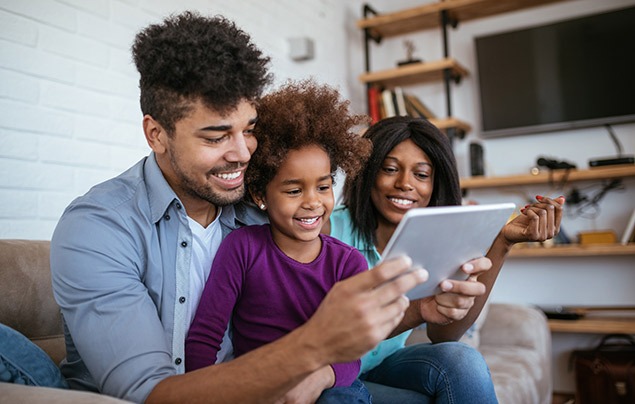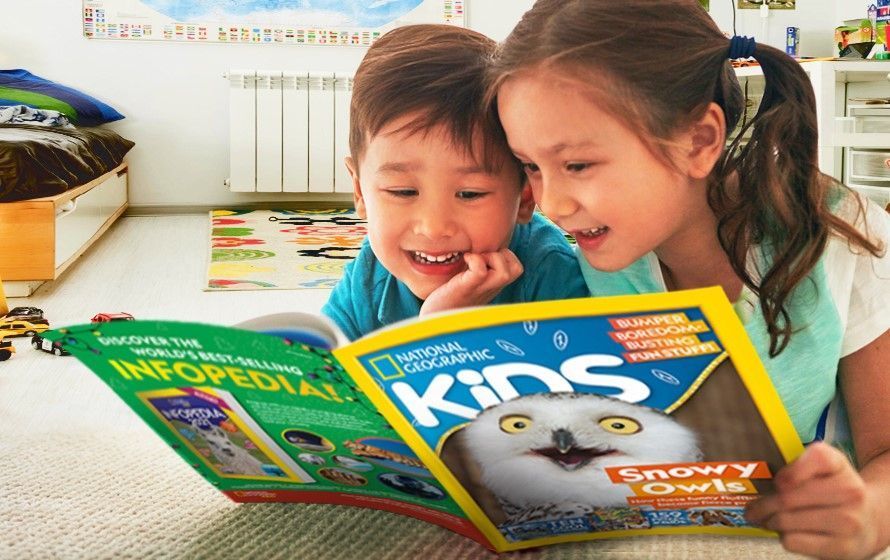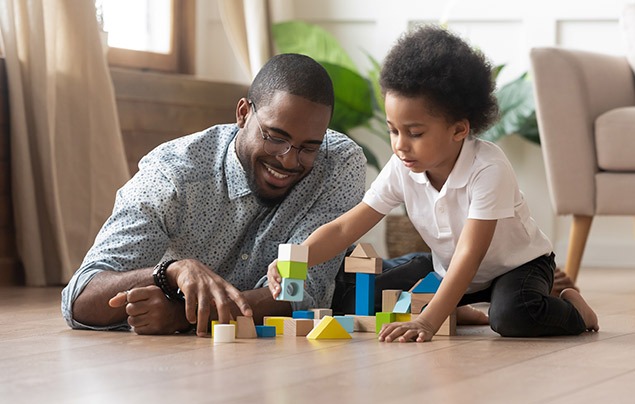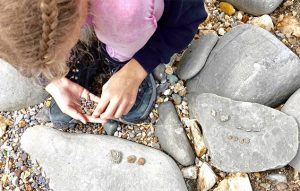What is the right amount of screen time for kids?
Many parents worry about their kids’ screen time. But should you put limits on it? And what are the alternatives?
Hands up – who’s used screen time for kids as a bargaining tool when nothing else seems to be working? No doubt it’s many of you. Handing over a device is sometimes the easiest option – but it might make you feel a little guilty.
Screen time has been reported to impact kids emotionally, cognitively and even physically, which can feel scary. But should screen time for kids always be seen as a bad thing? And what alternatives are there? We investigate…
Screen time for kids
Most kids today are surrounded by screens wherever they go. Whether it’s watching TV at home, using computers at school or picking up smartphones and tablets in the car, there are so many ways for kids to access screens.
Many parents, schools and health professionals are concerned about the amount of time kids spend on screens. That said, we need only reflect on the huge role screens played during the pandemic, delivering education to kids remotely across the British Isles – and the world – to see how screen time can play a positive role in engaging, educating and inspiring kids.
Later in the article, you’ll read about some easy alternatives to screen time. But we’d like to highlight one we think is particularly great – a subscription to National Geographic Kids magazine! Every issue is packed with fun, informative articles and awe-inspiring photos to engage even the most reluctant readers, inspiring a lifelong love for reading.
Screen time benefits
- – The internet can be a fountain of knowledge for kids to responsibly explore and absorb.
- – Using digital devices improves visual intelligence and hand-eye coordination.
- – Digital games and activities can build teamwork skills, puzzle-solving and creativity.
- – Technology can nurture social connections, especially for kids who struggle to make friends or have communication challenges.
- – Kids who have access to a computer at home tend to perform better academically than those who don’t.
Screen time negatives
- – The blue light emitted from screens can affect sleep patterns.
- – Kids tend to spend time inactive and indoors while using screens.
- – Screen-based activities increase central nervous system arousal, which can heighten anxiety.
- – Some studies have shown younger generations to be more forgetful than older ones, as outsourcing things to remember to digital spaces has become habitual.
- – There is a risk of exposure to inappropriate content, misinformation or meeting strangers online.
Should you limit screen time?
Truthfully, the full effects of screen time for kids are still being debated – but many experts, schools and health bodies, including the World Health Organisation (WHO), recommend limiting screen time for kids.
Others take a more balanced view, stating that a certain level of screen time can be beneficial for kids, and that parents’ focus is better spent on what kids are engaging with on screens rather than how often. In fact, according to research conducted by Oxford University with over 20,000 parents, screen time limits may have nothing to do with a young child’s ability to thrive.
The research proposed that worried parents should follow the ‘Goldilocks Theory’ – which suggests there is a point between low and high technology use that is ‘just right’ for kids – and work on creating a healthy balance.
Screen time alternatives
Reading
A much more relaxing way to consume entertainment and storytelling is through literature! Fact books, kids’ fiction and of course magazines, like Nat Geo Kids, are a great way to keep kids entertained, but also help them to relax and wind down – especially before bed.
Board games
Board games and puzzles are not only fantastic family fun, but they’re also great for kids’ brains, too. They stimulate areas of the brain responsible for strategy, creativity, patience and memory!
Crafts
Kids love hands-on projects that give them a creative outlet. Crafting gives them a sense of achievement and freedom to experiment (and provides you with some questionable ‘artwork’ for your fridge!).
Try out our eco-friendly slime recipe! This easy craft will provide heaps of family fun, and it doesn’t hurt the planet.
Outdoor play
Outdoor play is important for physical fitness, and it’s been proven to benefit kids’ mental wellbeing, too! Getting outdoors needn’t be rigorously planned – from detouring through a local green space on the school run, to conducting a bug safari in your garden, every bit of time outdoors helps kids engage with the outside world. (And it might help your family communicate better, too!)
Collecting
Collecting is a timeless hobby that helps kids to nurture their passions, increase their knowledge and engage their curiosity. It’s also great for teaching kids to care for their possessions by keeping them neat, tidy and organised.
Building
Constructive play nurtures kids’ creativity as well as developing motor skills and problem-solving skills. Best of all, building toys are incredibly durable and universal in appeal – providing you with years and years of fun!
Baking
Aside from the obvious benefit of having something tasty to tuck into afterwards, baking is a relaxing and educational activity for kids, allowing them to get creative, experiment with flavours, learn about healthy eating, and even learn new words and measures from recipes. If you’ve never baked before, why not resolve to give it a try as a family?
Podcasts
Okay so slight cheat here, because technically, listening to a podcast does often involve a short amount of screen time while you get the podcast started (unless you listen through a smart speaker) – but once playing, podcasts are an audio-only experience that can be great for kids!
From educational to storytelling, they’re a screen-free way to consume entertainment media while increasing learning and language skills. Plus, you can listen practically anywhere, making them a great tablet alternative for car journeys, especially if your kids suffer from travel sickness!
Look out for more fantastic screen-free ways to get your kids playing and learning, in the free National Geographic Kids’ newsletter. Sign up now to receive emails full of fun activities, good news stories and more!















LEAVE A COMMENT
THANK YOU
Your comment will be checked and approved shortly.
WELL DONE,
YOUR COMMENT
HAS BEEN ADDED!
COMMENTS
CUSTOMIZE YOUR AVATAR